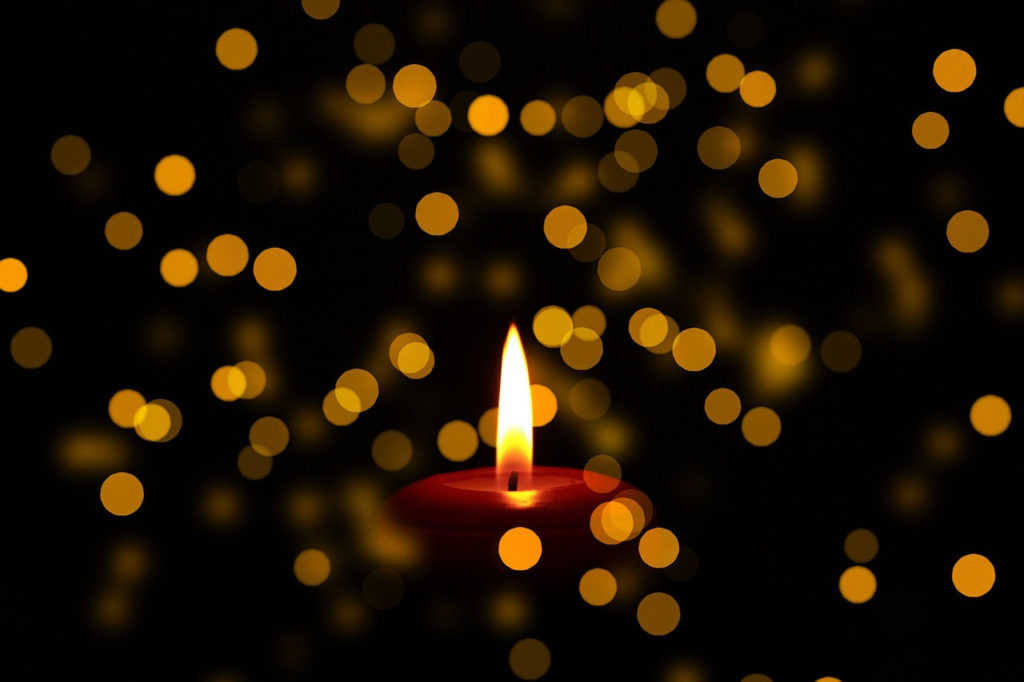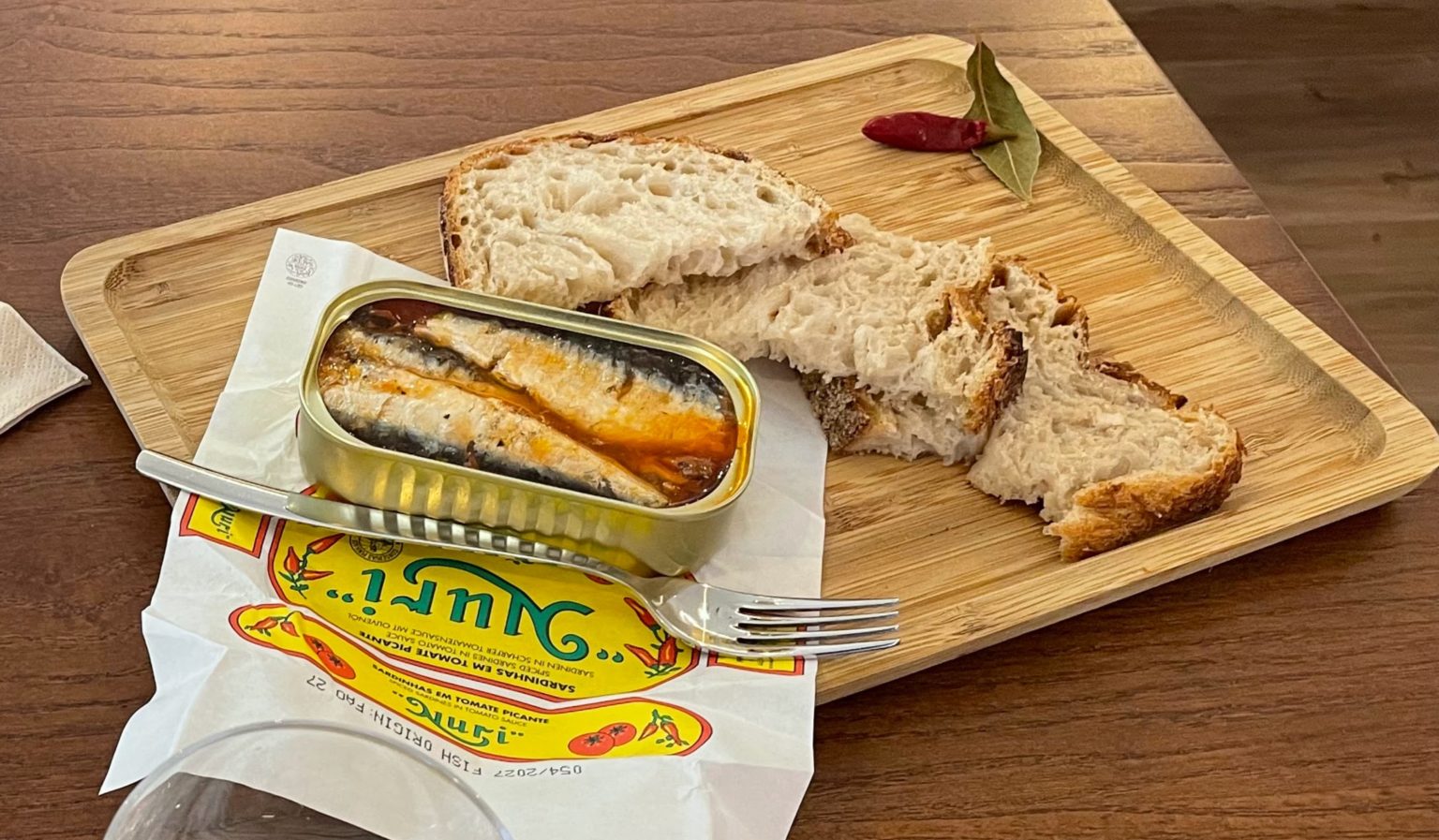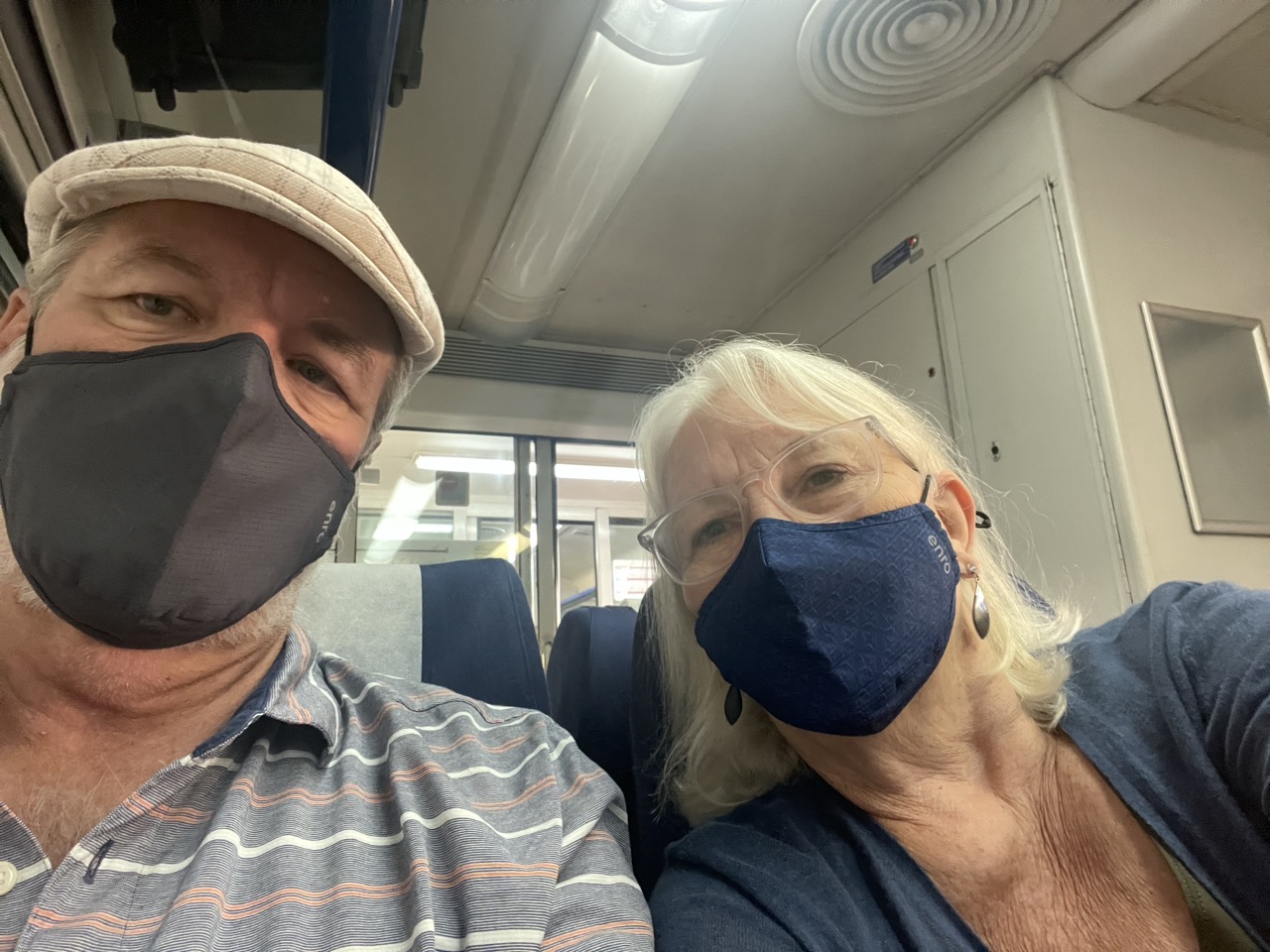Ed:
This past Thursday, Bonnie and I were enjoying a rare blank calendar day, lounging around the flat, working on our travel plans, and generally relaxing. We finally wandered out into a blustery late afternoon, strolling around the neighborhood to visit the local “tobacos” to pick up a recent amazon purchase. (As in many European countries, tobacco stores in Spain fulfill an assortment of official functions – bus fare, postage, delivery point, lottery tickets, etc.) As I waited on the street for Bonnie, I looked out toward the medieval tower that defines our neighborhood and was startled to see a large puff of dark smoke drifting by. As I watched, it was followed by another, and then a growing cloud pushed by a brisk breeze.
As soon as Bonnie emerged with her package we headed out to the tower where I hoped to be able to locate the source. As we turned to face the west, my heart sank – a torrent of dark smoke was billowing up from a location just beyond our vision. I knew instinctively that this was a serious structure fire, and there was no sign of the tell-tale white or grey plume that would indicate the bomberos (fire fighters) were on site.
Bonnie began tapping into our Valencian expat network asking if anyone knew what was going on. Some twenty minutes later she turned to me with the first photo on her phone: a high-rise apartment block was spewing flames and smoke on two or three floors about a third of the way up the building. I looked at that image in horror. Five decades of working in the electrical construction industry was more than enough for me to see in an instant what kind of tragedy was unfolding in that moment. Everything we do in the design and construction of a high-rise building is done with the goal of preventing exactly the scenario I was staring at in that image and I knew something had gone terribly wrong. By the time we had returned home, we watched in anguish as the videos and news reports began streaming in real-time a disaster that will profoundly impact not only Valencia, but all of Spain for years to come. Scenes of the hellish catastrophe continued throughout the night as the fire completely engulfed two 14 story apartment blocks.
Bonnie:
Of course, we were anxious to find a way to help. We both reached out that night to some of our closest friends and the expat community that we’re connected with here in Valencia. It was nearly impossible to sleep as our phones (and my new Apple watch) kept dinging with messages and updates. By morning, the fire had mostly burned itself out, and the grim business of counting the human cost was underway.
We received a message a little later that the Casal Falla (There are more than 400 of these traditional neighborhood social organizations around Valencia) nearest to the fire was collecting items for the families who were suddenly without a home. At that point the items they were in most need of were diapers, personal hygiene items, and baby clothes. On Friday at 1:00 we met with our good friends Heather, Jim & Elsa at one of our favorite street cafes, Sant Juame, and of course, much of our conversation focused on the fire. I mentioned to
Heather that we were planning to buy some diapers and personal care items and deliver them to the Casal that afternoon. Heather said she wanted to do this as well and we agreed to go together. The plan was to leave our place at 4:15, stop at a supermarket, and then take a bus to the Casal. We had to be back by 7:00 to meet with our new neighbors at their place right across the street from us. (I know, retirement is awesome!)
Ed and Jim decided to stay home so Heather and I headed out together with our shopping roller bags in tow. With Heather’s permission, the following is her account of our experience.
Heather:
Bonnie and I met up and went to Consum to grab a bunch of items: diapers, pads & tampons, hand sanitizer, shampoo and conditioner and other personal care items. We weren’t sure what was better, a bunch of one or two items, or a little of everything. We ended up doing a little of everything. We had heard that some of the local hotels were taking in affected people – the Hotel Valencia Palace was said to take 40 couples that night – so we decided to not bring food items as it was unlikely that most people would have access to a kitchen, and everyone probably needed toothpaste and toothbrushes.
Once we left the store, I looked up transit options on Moovit and we went to catch the first connection. The Campanar neighborhood is about a 1 ½ miles from where we live, but the only time either of us had really been there was for an artichoke festival a few weeks ago. We missed the first bus by seconds (it’s hard to run with roller bags stuffed full!), but the public transit here in Valencia is excellent and another bus came in seven minutes.
When we got off, we were a little confused on how to get to the next connection’s stop, it wasn’t far but there were 4 streets and weird angles involved – and now we know if we go that way again it’s easier to go back a half a block and cross there instead of the way we went. There was an older gentleman standing at the bus stop already, and B and I chatted to each other while we waited. A couple of buses that were not ours passed us and my Spidey sense went off. I checked Moovit and saw that the next bus was due in 21 minutes. That seemed far longer than it should be – in the early afternoon the longest I’ve seen is more like 14 minutes. I checked Google and it said no, the bus should be there in 7 minutes. So, then I checked the EMT website and saw the dreaded <!> sign. The alert was in Spanish, but I could tell without getting the translation app involved that there were delays and re-routing because of THE FIRE. Total face-palm moment. Of course – we were headed to the Falla in the neighborhood of the fire! Why that hadn’t occurred to me, I don’t know.
As we watched the different transit app options give us wildly different estimates for the arrival of our bus (ranging from 7 to 14 minutes to more than 30), our comrade-in-waiting started talking to us in rapid Spanish. He didn’t seem to have a cellphone on him, so we showed him our apps and the EMT alert and we all commiserated with each other about how we had no idea if the bus was coming at all or not.
We decided to wait a few more minutes but when yet another no. 73 passed us (the 3rd one since we’d been standing there), we decided to grab a taxi. Bonnie had been eyeballing taxis for a few minutes, but in a quintessential moment of Murphy’s Law, as soon as we made the decision to hail a cab, there was nary a cab to be found! Our newfound friend had a lot to say to us as we discussed the taxi situation and I’m embarrassed to say that it took me far too long to realize that he was suggesting that we try to flag a taxi driving the opposite direction – he was telling us that a cab on the other side of the street would willingly flip a U turn. Of course, that meant that immediately no cabs passed in that direction, either, but we were on Gran Via de Ferron el Catòlic (a major street), and so we did finally snag one.
We piled in with our supplies and our cab driver told us that he wouldn’t be able to take us very far because of the blockades. Another face-palm moment. He drove the few blocks he could and deposited us at the police blockade. Out came our cellphones again (how did we survive without them?) as we looked up the address of the Casal that we were headed to. We saw people walking in the direction we knew we needed to go, so we followed them figuring there was a mix of local residents and other people headed to the donation site. Every time we came to yellow barriers or police tape, we stopped and re-oriented ourselves. We asked police twice for directions to the Falla, thinking that they would tell us to move along or go away, and they were more than nice – I would say in my terrible Spanglish that we had things for the fire and ‘Dondé está la Falla?’ and they would give us directions in English. The first time I think we were so surprised that we weren’t being turned away (and also, we could see the huge burnt building towering over us and it was so much worse seeing it in person) that I admitted to Bonnie that I had forgotten most of what he said after we’d walked about a half a block away – only to find out that she was in a similar state of shock.
The building is a burned out hull. It reeks of the violence of fire and brought back flashback memories of disasters and fires that I’ve been on the edges of: the Oakland Hills fire, the collapse of the Cypress structure after the 1989 Loma Prieta earthquake, the more recent annual California-burning-everywhere fires. Emotions welled up in me and I couldn’t help crying a little for the horror those people had and still were going through. Bonnie took my hand and wiped a tear away as well as we whispered to each other a few of these traumas we’ve both witnessed in common.
We came across a group of people standing in line being handed supplies in boxes and bags. It was clearly not the Falla, but I thought maybe we could drop our items off there – I found a harried looking organizer and she seemed very flustered but graciously took time to really listen to what we were trying to do and said that her group was not organized right now and we should continue to the Falla. And then after passing a big media presence where all the news crews were gathered, we spotted a banner with the Maestro Rodrigo Falla name on it – we had found it!
Still, there was one more hurdle to overcome – when we were at Consum, we just chucked everything in our roller bags, but now we realized that everyone was handing over their donations in bags. I had assumed that there would be boxes and they’d want canned goods in one, clothes in another, and so on. We stood there for a moment, uncertain of what to do, and then a man walked up with a bag full of EMPTY BAGS! “Bolsa! Bolsa por favor!” we cried, and voila, problem solved. We filled up a couple of the bags and handed them to the organizers. Mission accomplished.
Now, how to get home? We had started this whole production 2 hours ago. Neither of us wanted to walk back past that blackened husk where people had lost their lives and pets and all the things that made their apartments home. We decided to walk in the opposite direction from whence we came, and to find another bus line that didn’t travel through this area, but in a reverse of our earlier Murphy’s Law taxi experience, mere seconds later, we spied a taxi pulling up behind the Falla.
“Oh, let’s see if they’re going to get out here” I murmured – and as luck would have it, the driver pulled up right next to us. As he got out of the cab to assist the two ladies inside (they were there for the same thing we were), Bonnie made eye contact and said hello to him. The women collected their bags, and they saw us with our roller bags. One of the women looked right in my eyes and smiled a smile of connection, of community. I smiled back at her and we both said gracias to each other. The cab driver put our rollers in the trunk and we hopped in and gave him our destination of Torres de Serrano. I spotted a 5 euro on the console and so I handed it to him. It seemed a little weird that they had put the money there instead of handing it to him, but that thought quickly disappeared as Bonnie and I talked about how glad we were that we had succeeded in our quest.
As our taxi driver veered around barriers and worked his way towards open roads, he was talking to dispatch a lot. Then he said something to us. As often happens, it was too fast for me to process, so I told him my usual “sorry, my Spanish isn’t very good, can you slow down and repeat what you said?” and when he did I realized that he was asking if we had gone over to the Falla to help, so I said yes, we had brought things to them. He pulled up to the towers and Bonnie handed him money for the fare, but he refused to take it. He helped us get our things out and gave us both hugs. We both teared up at his generosity and thanked him profusely.
It wasn’t until I walked in my apartment door that I connected the dots – when his previous fares got out of the cab, they had thrown money in the back seat – I think he refused to take their money too, but one of the ladies had stayed in the cab while he was getting their bags of donation goods out of his trunk and put the fare money on the console.
Bonnie:
Whew! That 2 ½ hours was jammed packed – not just with the logistical challenges we faced, but also the emotional ones. Processing feelings of both grief and joy at the same time is complex and I’m thankful for the way this time spent with Heather captured for me the bittersweet nature and richness of life. I’m also thankful for finding such a wonderful friend in Valencia. I admire Heather’s genuineness, caring, compassion, and way of celebrating life’s lighter moments. Her presence and companionship made this adventure truly memorable. I also admire the Spanish people whose deeply rooted commitment to family, friends, and community has been so evident in their response to this tragedy.
Ed:
It’s sobering. We’ve enjoyed a pretty drama free year in Valencia and have come to love the people and culture they have created for themselves. As Bonnie says often, “it’s a gentle life,” and we are privileged to share a small bit of it. The reality, however, is that there are real differences in societal priorities here that we are becoming aware of only slowly. Building safety is certainly one of those differences. A huge emphasis is placed on the energy efficiency of new construction with all the attendant investment. At the same time, smoke detectors are still not mandatory in dwelling units! This is inconceivable and incredibly troubling to us. As Bonnie expressed it, “we want Spain to be better than this!”
The construction of safe buildings has defined my entire adult life. What you probably know as the Electrical Code, I know as NFPA 70. (The electrical code is written and published by the National Fire Protection Association). California in particularly is a world leader when it comes to building standards and has much to share. I was fortunate to be allowed a role in that arena and naively assumed the rest of the developed world was following our lead. When Bonnie turned to me with tears in her eyes and asked, “how could this have happened,” I knew exactly how, and could write pages about the failures and shortcomings of the building we watched burning that night.
Unfortunately, as we have seen over and over, it often takes an immense tragedy to finally motivate meaningful reform and change. For Spain, I truly hope and believe we witnessed such a moment this week. The entire Valencian community is officially in mourning this weekend and our hearts are with them.
About Us
Welcome to our little corner of the world where we invite you to embark on exciting journeys with us!
We’re Ed and Bonnie, a duo passionate about exploring the world and experiencing its wonders. Our love for travel isn’t just about discovering new places; it’s about sharing those moments with cherished family and friends like you.
Our hope is that you will feel like you’re right there with us, sharing in the excitement and wonder of each destination. Better yet, let’s plan a rendezvous somewhere wonderful! Learn more





Thank you for sharing your personal fire experience in such detail. It helps us better understand how truly devastating this fire is. The articles I read all mentioned cladding on the outside of the building. Hopefully your building doesn’t have this. Do stay safe. We miss you and will be glad to see you sometime in Spring or summer. We are doing fine and David is OK so far. We know this can change soon so will be glad when Barbara is back to help him. Love you, Mom
Unbelievable!!! Is there any estimate yet of lives lost?? All of your impressions are memorable, and we only hope that this Tragedy Will mark a turning point in the way buildings are constructed–No Smoke Alarms?!? What is the status of Your Apartment? Could smoke alarms be installed? We can only comtrast this to the fires in Greece which were often , if you can imagine, Purposely set in order to collect Insurance Money!! And, as Heather mentioned, remember the Oakland Hills fire!
Valencia must indeed be in mourning and the smell of smoke a constant reminder. Hopefully, there are far fewer tourists right now. You have now witnessed the Darker Side of living abroad, but we are sure that the compassion and generosity of the Ex Pats and Valencianos (like the taxi driver) will More than make up for it. Your idyll has had a major upset, but not defeat! Love, J&N
PS. We are experiencing perfect Spring weather in LG and loving it! Anza Borrego Wildflowers in early April!
Thank you for sharing this. Living in California my whole life, fire danger seems a given. As I reflected on this tragedy my mind raced through the memories of so many horrific fires in California that burned up homes, businesses and out buildings and hundreds of thousand acres. But the fire that affected me most was one not unlike this one. Of course it was another Santa Ana wind day. A fire broke out in an apartment in Anaheim and in short order two blocks of apartments were burning to the ground. For many years I regularly drive down the streets with these apartments and remember the kids playing outside and walking to and from school. 80 to 100 families were displaced. Many with no money. Most left with only the clothes in their backs. All was lost and they needed help from whoever could provide it.
Thank you for doing something to help there in Valencia. I’m sure this is just the beginning of what these folks need.
What a harrowing day. I am so sorry to hear about the fire but am impressed by your ability to respond and assist survivors. It is unbelievable that building codes there are so lax. Frightening to imagine. Stay safe you two. So glad you two have formed good friendships and a sense of community with other ex pats. Your generosity is commendable. Much love.
How sad this all is, and how wonderful that you were able to help. It reminds us that nowhere is immune from tragedy.